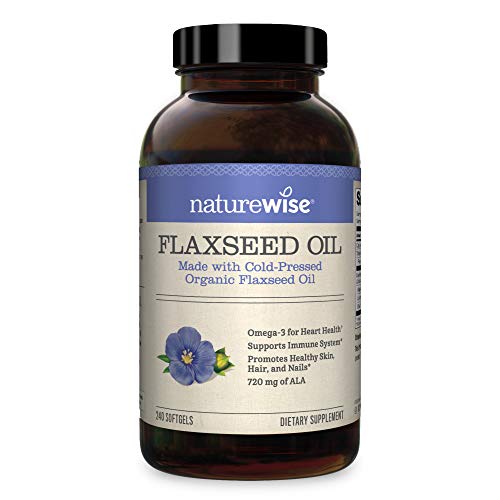
Organic omega 3
Best organic omega 3 supplements
Updated 8/25/23
From potentially lowering blood pressure to reducing the risk of heart disease, the benefits of taking omega-3 supplements are wide-ranging. If you are considering taking an omega-3 supplement, speak to your doctor first to discuss whether it is right for you. If you do end up taking one, ensure it’s a high quality supplement. Below are some of our favorite organic omega 3 options below.
Omega 3 fatty acids have been studied extensively for their beneficial effects on brain health. Dr. Rhonda Patrick, a leading expert in the field of nutrition and longevity, has done extensive research into the effects of omega-3s on the brain. In her research, she has found that diets rich in omega-3s are associated with better cognitive performance, improved memory and focus, reduced stress and anxiety levels, improved mood regulation, and even enhanced neurogenesis (the growth of new neurons in the brain). Additionally, Dr. Patrick notes that these benefits may be further compounded by other lifestyle factors such as proper sleep hygiene and exercise.
In addition to its potential benefits for brain health, omega-3 fatty acids have been linked to a wide range of other health benefits. Research has shown that they may help to reduce inflammation in the body, which can play a role in a variety of health conditions including arthritis, heart disease, and even some forms of cancer. Omega-3s may also help to improve joint health and mobility, and may even help to promote healthy skin and hair. Additionally, some studies have suggested that omega-3s may help to reduce symptoms of depression and anxiety, making them a potential natural alternative to traditional medications.
Organic Omgea 3 FAQs
What are the benefits of omega 3?
Some potential benefits associated with omega-3 fatty acids include:
Reduced risk of heart disease and stroke
Improved cognitive function
Lower blood pressure
Reduced inflammation throughout the body
Protection against Alzheimer's disease and dementia
Improved joint health
Enhanced visual acuity and eye health
Is it recommended to take omega 3 supplements daily?
The American Heart Association (AHA) recommends that people who are not getting enough omega-3 fatty acids from their diet should take supplements. The AHA also recommends a specific daily amount of omega-3 fatty acids for people with heart disease. For people with documented coronary heart disease, the AHA recommends 1 gram per day of EPA and DHA. For people with high triglycerides, the AHA recommends 2 to 4 grams per day of EPA and DHA. People with diabetes may also benefit from taking omega-3 supplements. The American Diabetes Association recommends fish oil supplements for people with diabetes, although the ideal type, dose and combination of fish oils is still under debate. Speak to your doctor before taking any supplements.
What foods are high in omega-3?
There are a variety of foods that are rich in omega-3 fatty acids. These include:
Fatty fish such as salmon, tuna, mackerel and herring
Fish oil supplements
Flaxseeds and flaxseed oil
Walnuts and walnut oil
Omega-3 fatty acids are also found in smaller amounts in eggs, Brussels sprouts, kale, spinach and grass-fed beef.
Are eggs high in omega 3?
Yes, eggs are a good source of omega-3 fatty acids. One large egg contains about 185 mg of omega-3 fatty acids. Eggs also contain other nutrients that are important for health, such as protein, vitamin D and choline.
Do vegetarians get enough omega 3?
Vegetarians can get enough omega-3 fatty acids by including foods such as flaxseeds, flaxseed oil, canola oil, soybeans, pumpkin seeds and walnuts in their diet. Vegans may need to take an omega-3 supplement to ensure they are getting enough of these essential fatty acids. Speak to your doctor or a registered dietitian to determine if you need a supplement.
What is the difference between omega 3 and fish oil?
Omega-3 fatty acids are a type of polyunsaturated fat that is found in fish, plant oils and some nuts and seeds. Fish oil is a dietary supplement that contains omega-3 fatty acids, usually in the form of EPA and DHA. These fatty acids can also be found in other seafood, such as krill oil or algal oil. Omega-3 supplements are available in capsules or liquids. Fish oil supplements are commonly used to improve heart health and reduce inflammation.
Is olive oil high in omega 3?
No, olive oil is not a good source of omega-3 fatty acids. Olive oil is mostly made up of monounsaturated fats, which are a type of healthy fat. However, olive oil does contain a small amount of omega-3 fatty acids. One tablespoon (15 ml) of olive oil contains about 1 mg of omega-3 fatty acids. If you are looking for foods that are high in omega-3 fatty acids, you should focus on fatty fish, fish oil supplements, flaxseeds and flaxseed oil.
Is it safe to take omega 3 during pregnancy?
Yes, it is generally safe for pregnant women to take omega-3 supplements in the recommended amounts. The American Pregnancy Association recommends that pregnant women take at least 200 mg of DHA per day. Pregnant women should speak to their doctor before taking any supplements, including omega-3 supplements.
What are the side effects of taking omega 3?
Most people do not experience any side effects from taking omega-3 supplements. However, some people may experience mild side effects such as stomach upset, diarrhea, bad breath or a fishy taste in their mouth. These side effects are usually temporary and go away on their own. If you experience persistent or severe side effects, stop taking the supplement and speak to your doctor.
Omega-3 fatty acids are a type of polyunsaturated fat that is found in fish, plant oils and some nuts and seeds. Fish oil is a dietary supplement that contains omega-3 fatty acids, usually in the form of EPA and DHA. These fatty acids can also be found in other seafood, such as krill oil or algal oil. Omega-3 supplements are available in capsules or liquids. Fish oil supplements are commonly used to improve heart health and reduce inflammation.
More about Omegas
The world of dietary supplements is vast, with a myriad of options available, each promising unique health benefits tailored to individual needs. Among these, omega fatty acids have become increasingly popular due to their noted potential benefits. Two prominent members of this group, aside from the well-recognized Omega-3, include:
Omega-6 fatty acids: These are essential fats that the body cannot produce on its own. They play a critical role in brain function and help stimulate skin and hair growth, regulate metabolism, and maintain bone health.
Omega-9 fatty acids: Although these are non-essential fats (meaning the body can produce them), their supplemental intake can be beneficial. Omega-9 aids in reducing bad cholesterol, thereby promoting heart health, and is also known to enhance mood and boost energy.
Given the increasing interest in Omega-3, a frequently asked question revolves around its optimal consumption. Omega-3 supplements are commonly available in two forms: capsules and liquids. The decision between the two boils down to personal preference. Capsules might be favored by those who find them convenient and tasteless, whereas liquids can be mixed into drinks or food for those who dislike swallowing pills. If you're venturing into the world of Omega-3 supplements for the first time, it's wise to commence with a modest dose. Over time, you can adjust the dosage based on your body's response and specific requirements. It's of paramount importance to consult with a healthcare professional or nutritionist to determine the dosage that aligns best with your health goals and needs. They can provide personalized advice and insights, ensuring you reap the maximum benefits from your supplement regimen.







